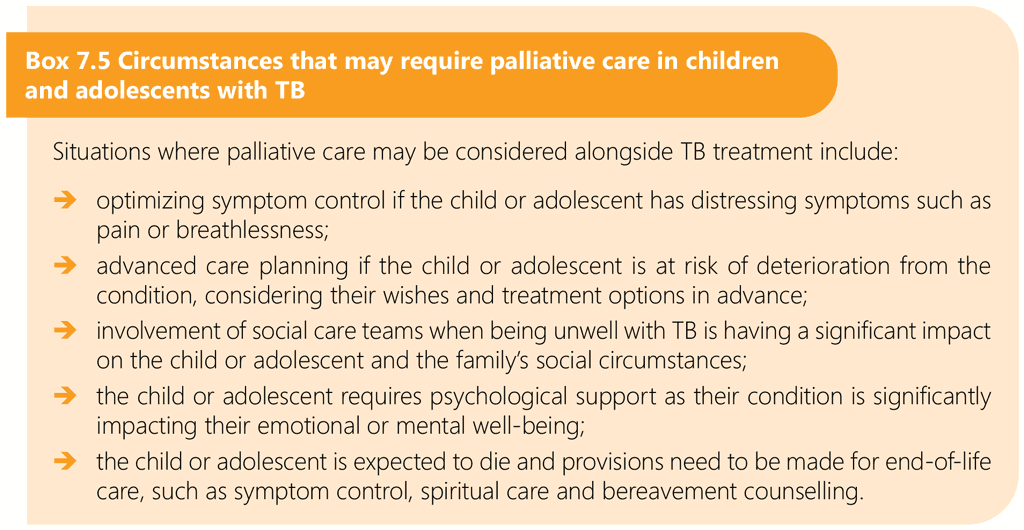Book traversal links for 7.3.2. Palliative care for people with TB
Palliative care for people with TB has not received adequate attention, as the focus has been on access to curative treatment. Palliative care aims to relieve suffering due to disease and illness and should be provided in conjunction with curative treatment. Although TB is curable, MDR/RR-TB (including pre-XDR and XDR-TB) is an increasing problem in many high TB burden and low- and middle-income countries, with poorer treatment outcomes reported for this group. All people with TB should be assessed for palliative care needs and these needs are greatest among people with MDR/RR-TB, some forms of EPTB (such as TBM or osteoarticular TB) and for people with comorbidities (e.g. HIV, diabetes) (199). Key to the provision of palliative care in children and adolescents with TB are the needs of the patient, regardless of their diagnosis – for example, some children defaulting treatment may be very unwell and require palliative care (Box 7.5).

In November 2010, a group of experts in palliative care and MDR-TB and XDR-TB issued a declaration to expand efforts to include palliative care in the global response to MDR-TB and XDR-TB, which emphasized that access to palliative care is a human right, an essential component of TB care and that it should be strengthened (200).
Comprehensive guidelines for palliative care and support for people with TB and DR-TB were developed in 2016 (201, 202). These guidelines highlight the unique situation that TB poses for palliative care, related to the infectiousness of TB and MDR/RR-TB (including the impact on staff training and retention), indications for referral and provision of palliative care, stigma, behavioural and abuse issues, and ethical dilemmas. The guidelines recommend that symptom relief should be available to all people with TB with significant symptoms, including shortness of breath, pain, gastrointestinal dysfunction, night sweats and haemoptysis. In addition, formal palliative care should be available following a decision to discontinue TB treatment (201).
 Feedback
Feedback